by Lynne Eldridge MD. Originally posted on 30 October 2015 at About.com. Many of us have been upset recently as well-meaning organizations have made smoking cessation the focus of lung cancer awareness month. Certainly, encouraging the public to never begin, and to quit if they smoke, is admirable. And for people with lung cancer, quitting may improve survival. Yet lung cancer awareness month should have a different focus. Spreading information on smoking cessation does little overall for those living with lung cancer today. Five months after receiving a diagnosis of lung cancer, only 14% of people with the disease are smokers. To focus on smoking is analogous to making breast cancer awareness month all about informing women that they should have their first child before the age of 30 (to decrease the risk of breast cancer.) Awareness month should be about supporting people with the disease, not about discussing the causes. Awareness month should also be about funding to research better treatments. Those who smoked in the past won't benefit from a lecture about what they may have done differently 20 years ago. Instead, they need treatment today. And for never smokers with the disease--not uncommon considering lung cancer in never smokers is the 6th leading cause of cancer deaths in the U.S.--this focus makes a month designed to celebrate their lives irrelevant. Some people may remain skeptical, but read on for further reasons why lung cancer awareness month should not have smoking cessation as the central focus. The majority of people with lung cancer are non-smokers. This heading is not a typo. The majority—roughly 60% of people—diagnosed with lung cancer are non-smokers. This includes people who smoked at some time in the past, as well as never smokers. In the United States 20% of women with lung cancer are never smokers, with that number rising to 50% of women with lung cancer worldwide. Numbers such as 20% may seem small, until you take a look at the statistics. Lung cancer is the leading cause of cancer deaths in both men and women in the United States. Lung cancer kills twice as many women as breast cancer, and 3 times as many men as prostate cancer. And while around 30 to 40% of people smoke at the time of diagnosis, only 14% of people with lung cancer are smoking 5 months after diagnosis. In other words, the vast majority of people with lung cancer today will not benefit from hearing about the hazards of smoking. Not only is this focus not helpful, but it serves to propagate the stigma of lung cancer as a smoker's disease. Unfortunately this vast majority, including most never smokers, have already been subjected to the blame game. Have breast cancer? Nice. People act loving and ask how they can help you. Have lung cancer? Raised eyebrows accompanied by some variation of the question,"How long did you smoke?" There are many reasons that living with lung cancer can be harder than living with breast cancer. Let's not add cancer awareness month to the list. There are Other Causes of Lung Cancer There are many causes of lung cancer. Even if tobacco had never been introduced on the planet, we would still have lung cancer. Yes, smoking is the leading cause of lung cancer, but causes other than smoking are very important. Though the number seems small—20% of women who develop lung cancer being never smokers—this translates to a fifth of the 71,660 lung cancer deaths in women expected for 2015. Radon exposure in the home is the second leading cause of lung cancer, and the number one cause of lung cancer in non-smokers. Roughly 21,000 people die from radon-induced lung cancer each year, and this cause is entirely preventable. Picking up a radon test kit from the hardware store for around 10 bucks, and having radon mitigation done if the test is abnormal, is all that's needed. Putting these numbers in perspective may help. Around 39,000 women are expected to die from breast cancer in 2015. If we had a $10 test to check for a risk factor, and a procedure costing less than a grand that could completely prevent half of breast cancer deaths, do you think we would have heard? Why doesn't the public know about this? It goes back to the focus of this article; we are placing the emphasis of lung cancer awareness on smoking, and in doing so, are leaving the public with a false sense of assurance that all's well if you don't smoke. There are other causes worth mentioning, from air pollution, to indoor air pollution, to secondhand smoke, to occupational hazards. Don't assume you are safe if you never smoked. Learn about the other causes of lung cancer in non-smokers and what you can do to reduce your risk. People Who Have Quit Smoking Are Still at Risk Quitting smoking certainly reduces the risk of lung cancer, but for most, some risk always remains. The numbers in the last slide attest to this. There are more former smokers who develop lung cancer each year than current smokers. If you smoked in the past, don't fret yet. After 10 years of quitting, the risk of lung cancer decreases by 30 to 50%. There are also some ways of reducing your risk of dying from lung cancer. One method is low dose CT lung cancer screening. While screening doesn't lower the chance that you will get lung cancer, it does increase the chance that if you develop lung cancer, it will be found in the earlier, more curable stages of the disease. It's thought that screening people at risk could reduce the mortality rate from lung cancer by 20% in the United States. Screening is currently recommended for people between the ages of 55 and 80, who have a 30 pack-year history of smoking, and continue to smoke or quit within the past 15 years. In some cases screening may be recommended for other people based on personal risk factors for lung cancer. In addition, studies looking at exercise and lung cancer as well as diet and lung cancer suggest there are some things that both people without and people with lung cancer can do to lessen risks. The Stigma Interferes With Early Diagnosis My favorite part of lung cancer events I attend, is when lung cancer survivors share their story. A special time, but oh so painful. Time and time again people share what eventually led to their diagnosis -- often a series of visits, with several doctors, over a period of months, during which time they have been diagnosed with everything from asthma to Lyme disease. Lung cancer flies below the radar screen for many health care professionals, especially lung cancer in never smokers and lung cancer in young adults. For this reason, many are diagnosed when lung cancer has already spread, and the chance of a cure with surgery has passed. In fact, young adults and never smokers are more likely to be diagnosed at an advanced stage of the disease. Until we have a widespread screening tool for lung cancer, it's important for health professionals and patients alike, to realize that all you need to get lung cancer is lungs. The symptoms of lung cancer can be different in non-smokers than smokers, and those of lung cancer in women are often different than symptoms in men. Be your own advocate. If you have any symptoms that aren't adequately explained, ask for a better explanation or a second opinion. If we are to find lung cancer early, we need to dispel the myth that lung cancer is a smoker's disease. That's part of what lung cancer awareness month is all about. The Stigma Interferes With Research for New Treatments Private funding for breast cancer surpasses that of lung cancer by a great distance, as evidenced by Susan G. Komen being a household word and pink ribbons having a widely recognized significance. How many people can name the largest non-profits for lung cancer, and how many people even know the color of the lung cancer ribbon? Public funding also lags far behind for lung cancer, and this is important because funding means dollars which in turn means research. In 2012, federal research spending added up to $26,398 per life lost to breast cancer, vs only $1,442 per life lost from lung cancer. I have often wondered what the survival rate for lung cancer would be if the same amount of money and research had been invested as has been with breast cancer. Why is the funding so low, and why are researchers less likely to devote themselves to lung cancer? The stigma. There is an unseen, unheard statement that says, "These people smoked so they deserve to have cancer." Nobody deserves to have lung cancer, whether a never smoker or a lifelong smoker. Making smoking cessation the focus of lung cancer awareness only increases this stigma and gap. The Stigma Interferes With Research About Causes I made a comparison earlier about deaths from breast cancer, vs that from radon-induced lung cancer. That can be taken a step further. I read studies galore looking at possible causes of breast cancer, as well as dietary and other measures which may reduce the risk. It's rare when I find similar studies looking at lung cancer. What is causing lung cancer in non-smokers? Why is lung cancer increasing in young, never smoking women? We need to change the face of lung cancer, so that we can begin to look at possible answers to these questions. Lung Cancer is Increasing in Young, Never-Smoking Women Most of us have read the headlines in recent years. Lung cancer in men is now decreasing in the United States, while that in women has leveled off. Yet there is one group for whom lung cancer is steadily increasing. Young, never-smoking women. These women have to put up with constant questions about their smoking status, or another variant, "Did your parents smoke when you were growing up?" Why can't we treat these women as we treat women with breast cancer in October? Lung cancer isn't a "smoker's disease." Someone with lung cancer could be your mother or your daughter or your sister or your aunt. These young women deserve to know that they aren't being dismissed for having a smoker's disease, while at the same time coping with the stigma. Focus of Lung Cancer Awareness Month Okay. So smoking cessation shouldn't be the focus of lung cancer awareness month. What should be at the center of awareness? Number one should be support. Every single person with lung cancer -- regardless of smoking history -- deserves our love, compassion, and the best care possible. Think of how women are treated during breast cancer awareness month, how they are celebrated, how they are reminded that research is being done to make a difference. If you just don't know what to say, check out these tips on things not to say to someone with lung cancer. How would you treat your friend or loved one with lung cancer differently, if she had breast cancer instead? Number two should be about awareness. Not smoking cessation as this is done everywhere year round. Instead awareness that lung cancer occurs in non-smokers and having knowledge of the early symptoms could make a difference. Those who are former smokers should have the opportunity to learn about screening options. And just as breast cancer awareness month raises funds for research, lung cancer awareness month should also be a time to educate and encourage those with lung cancer about new advances, while providing funding for further advances. A Word About Smoking and Lung Cancer For smokers with lung cancer, quitting is critical. To speak of separating lung cancer awareness month from smoking is not to dismiss smoking as a cause of lung cancer. It is. For the minority of people living with lung cancer who smoke, quitting is incredibly important, and likely the most important thing anyone can do to improve survival. Check out these 10 reasons to quit smoking after a diagnosis of cancer. Quitting smoking after a diagnosis of lung cancer improves the response to cancer treatments, improves quality of life, and improves survival. For those without lung cancer, quitting not only reduces lung cancer risk, but improves survival in other ways. In addition to lung cancer, there are many cancers that are associated with smoking, and many other medical conditions associated with smoking. The Quit Smoking Toolbox is a free resource to help you gather the tools you need to be successful in giving up the habit. But remember that these tips on smoking and cancer were placed at the end for a reason. They apply to only a minority of people living with lung cancer today. Sources:
Amato, D. et al. Tobacco Cessation May Improve Lung Cancer Patient Survival. Journal of Thoracic Oncology. 2015. 10(7):1014-9. American Cancer Society. Cancer Facts & Figures 2015. Accessed 06/08/15. http://www.cancer.org/acs/groups/content/@editorial/documents/document/acspc-044552.pdf American Society of Clinical Oncology. Cancer.net Tobacco Use During Cancer Treatment. 04/2012. http://www.cancer.net/navigating-cancer-care/prevention-and-healthy-living/tobacco-use/tobacco-use-during-cancer-treatment Amato, D. et al. Tobacco Cessation May Improve Lung Cancer Patient Survival. Journal of Thoracic Oncology. 2015. 10(7):1014-9. Howlader, N., Noone, A., Krapcho, M., Garshell, J., Miller, D., Altekruse, S., Kosary, C., Yu, M., Ruhl, J., Tatalovich, Z., Mariotto, A., Lewis, D., Chen, H., Feuer, E., and A. Cronin (eds). SEER Cancer Statistics Review, 1975-2012, National Cancer Institute. Bethesda, MD, based on November 2014 SEER data submission, posted to the SEER web site, April 2015. http://seer.cancer.gov/csr/1975_2012/ National Cancer Institute. Cancer Statistics. Accessed 06/08/15. http://www.cancer.gov/about-cancer/what-is-cancer/statistics National Cancer Institute. Lung Cancer Prevention (PDQ). Updated 05/12/15. http://www.cancer.gov/types/lung/patient/lung-prevention-pdq#section/_12 National Cancer Institute. Smoking in Cancer Care—for Health Care Professionals. Accessed 08/01/15. http://www.cancer.gov/about-cancer/causes-prevention/risk/tobacco/smoking-cessation-hp-pdq#section/_1 Parsons, A. et al. Influence of smoking cessation after diagnosis of early-stage lung cancer on prognosis: systematic review of observational studies with meta-analysis. British Medical Journal BMJ2010:340:b5569. Published online 21 January 2010.
1 Comment
9/10/2015 Results from Genomics of Young Lung Cancer Study Promises New Research, Better Outcomes & More Hope for Lung Cancer PatientsRead Now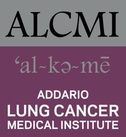 SAN CARLOS, Calif.--(BUSINESS WIRE)--The Addario Lung Cancer Medical Institute (ALCMI) released preliminary results from its Genomics of Young Lung Cancer Study (GoYLC) at the World Conference on Lung Cancer on September 8. These findings showed that more than 75 percent of trial participants have a driver mutation treatable with targeted therapies or precision medicine. “These findings provide the foundation for improved outcomes for lung cancer patients by driving genomic testing, precision medicine and targeted treatment” The study, launched in July 2014, aims to understand why lung cancer occurs in young adults who are quite often athletic, and never smokers. Last year alone an estimated 4,500 people under 45 were diagnosed with lung cancer. ALCMI, a patient-centric, international research consortium and partner of the Bonnie J. Addario Lung Cancer Foundation (ALCF) facilitated this first-of-its-kind, multi-institutional, prospective genomic study to characterize a new genome-defined subtype of lung cancer and accelerate delivery of more effective targeted therapies. To participate in the GoYLC study, patients must have pathologically confirmed primary bronchogenic lung carcinoma at any stage and any treatment point and be under the age of 40 at the time of diagnosis. “These findings provide the foundation for improved outcomes for lung cancer patients by driving genomic testing, precision medicine and targeted treatment,” said Bonnie J. Addario, Stage IIIB lung cancer survivor and founder of both ALCF and ALCMI. “From the moment we saw our first 22-year-old lung cancer patient five years ago we began to hear from many young adults worldwide with lung cancer and became determined to identify and address an unmet need that could benefit all lung cancer patients.” “Those diagnosed with lung cancer under the age of 40 tend to be never smokers and have Stage IV Adenocarcinoma at presentation,” said Barbara Gitlitz, MD, medical oncologist at the Keck School of Medicine of the University of Southern California (USC) and lead researcher for the GoYLC study. “We originally hypothesized that young adults with lung cancer might be an enriched population for targetable mutations; thus far we have far exceeded our statistical expectations. Our study is also quite novel allowing for web based participation so anyone in the world can join and use social media to share our trial information. Our initial findings provide a tremendous opportunity to drive innovative research and more impactful treatment for young lung cancer patients.” Patients enrolled thus far in the GoYLC study are located in the United States, Europe and Australia. ALCMI’s approach allows for a feasible, seamless way to conduct research across continents. “We are honored to provide the opportunity for lung cancer patients to help drive research and build their own treatment options for the future, and to work collaboratively with the leading lung cancer researchers and academic and community medical centers globally to help develop and accelerate new and improved diagnostics and therapies, ” said Steven Young, president and COO of ALCMI. For more information about the study, please contact Steven Young at 203-226-5765 or info@lungcancerfoundation.org. Lung cancer patients may learn more at https://www.openmed.org/site/alcmi-goyl. For more information about the ALCF please visit www.lungcancerfoundation.org or follow us on Facebook or Twitter. About the Bonnie J. Addario Lung Cancer Foundation The Bonnie J. Addario Lung Cancer Foundation (ALCF) is one of the largest philanthropies (patient-founded, patient-focused, and patient-driven) devoted exclusively to eradicating Lung Cancer through research, early detection, education, and treatment. The Foundation’s goal is to work with a diverse group of physicians, organizations, industry partners, individuals, patients, survivors, and their families to identify solutions and make timely and meaningful change and turn lung cancer into a chronically managed disease by 2023. The ALCF was established on March 1, 2006 as a 501c(3) non-profit organization and has raised nearly $25 million for lung cancer research and related programs. About the Addario Lung Cancer Medical Institute The Addario Lung Cancer Medical Institute (ALCMI), founded in 2008 as a 501c(3) non-profit organization, is a patient-centric, international research consortium driving research otherwise not possible, evidenced by ALCMI's current clinical studies CASTLE, INHERIT EGFR T790M, and the Genomics of Young Lung Cancer. ALCMI overcomes barriers to collaboration via a world-class team of investigators from 22+ institutions in the U.S. and Europe, supported by dedicated research infrastructures such as centralized tissue banks and data systems. ALCMI directly facilitates research by combining scientific expertise found at leading academic institutions with patient access through our network of community cancer centers – accelerating novel research advancements to lung cancer patients. Contacts Perry Communications Group Julia Spiess Lewis, 916-658-0144 julia@perrycom.com
8/31/2015 TUNE IN TO "START-UP U" ON TUESDAY, SEPTEMBER 1ST! STARTUP LEGEND AND PREMIERE VENTURE CAPITALIST TIM DRAPER GENEROUSLY PLEDGES ONE MILLION DOLLARS TO CHARITY - INCLUDING THE ADDARIO LUNG CANCER FOUNDATION!!!Read NowDraper Will Donate the Money When Tuesday’s All-New Episode of “Start-Up U” Hits One Million ViewersBurbank, CA (August 18, 2015) – Start up legend Tim Draper will donate one million dollars to charity if as many viewers watch ABC Family’s unscripted series “Startup U” on Tuesday, September 1 at 10:01PM ET/PT on ABC Family.
On Saturday, Tim Draper announced via Twitter and Facebook that he will donate one million dollars to charity if one million viewers tune-in to Tuesday’s all-new episode. Not only does Draper have a long history of donating to worthy causes close to his heart, but he is a champion of entrepreneurism; his life’s mission is to create a better future for everyone. “I believe in the series and the great work these kids are doing. What better way to support them than connecting it back to a worthy cause? This is a win/win situation for everyone, but especially the charities.” Charities that will benefit from Draper’s benevolence are ones very close to his heart, including the Parkinson’s Institute (in honor of his mother, who fights this disease), Bizworld, Tourettes Association of America (his brother-in-law and nephews are affected), Smith College Women’s business plan competition, Endeavor (supports third world entrepreneurship), Defy (works with former prisoners when they have paid their debt to society, Cal Arts and California State Summer School for the Arts, and the Addario Lung Cancer Foundation (amember of his staff is a survivor). Viewership will be measured by all methods, including mobile and online viewing, L+3 and L+7. In Tuesday’s episode, titled “Bro’s & Bras,” it’s Evangelism Week, which teaches the students how to become experts at selling their brand. Tim putseveryone in yet another challenging situation when he sends them to San Francisco to sell men and women’s underwear to the many shoppers in Union Square. There’s a catch, though: they have to sell the undergarments based on only a picture, with no actual product. Frustrated by the process, Tony makes a decision that irritates Sequoia and his classmates. Sharon meets with resistance when she pitches Hotpoint to various venues around the Bay Area, only to have things get tougher when Tim puts her in the hot seat. Meanwhile, Michael Volpatt (Partner, Larkin/Volpatt Communications) and Charlie meet with several students to evaluate their brands. “Startup U” is produced by Ugly Brother Studios, a Sky Vision partner. Mike Duffy, Tim Duffy, Tim Draper, Perry Dance and Ted Iredell serve as executive producers. Part of the Disney|ABC Television Group, ABC Family is distributed in 94 millionhomes. ABC Family entertains and connects to audiences with bold, relatableprogramming that celebrates the epic adventure of becoming an adult, from first kiss to first kid. ABC Family's programming is a combination of network-defining original series and original movies, quality acquired series and blockbuster theatricals. “WATCH ABC Family” is an authenticated service which allows viewers with participating TV subscription services access to 24/7 live viewing of the network, as well as continued on-demand access to such popular series at home and on-the-go via a wide array of devices. ABC Family is also the destination for annual holiday events with "13 Nights of Halloween" and "25 Days of Christmas." ABC Family Media Relations: Joelle Johnson, (818) 569-7746, joelle.johnson@disney.com For additional press materials, please visit http://www.disneyabcpress.com/abcfamily/ Facebook: www.facebook.com/StartUpUTV Twitter: twitter.com/StartUpUTV Why are so many women who have never lit up |
Details
|


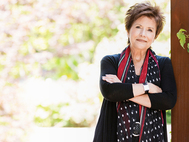


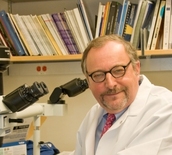
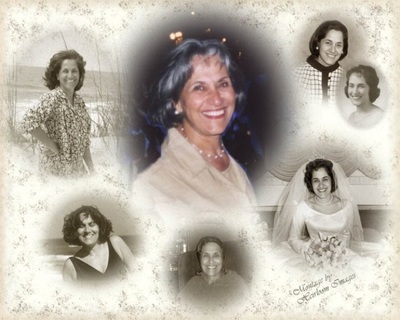
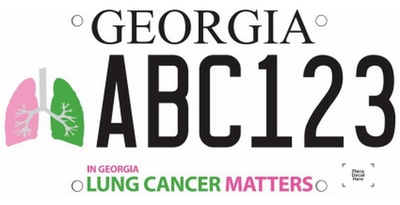
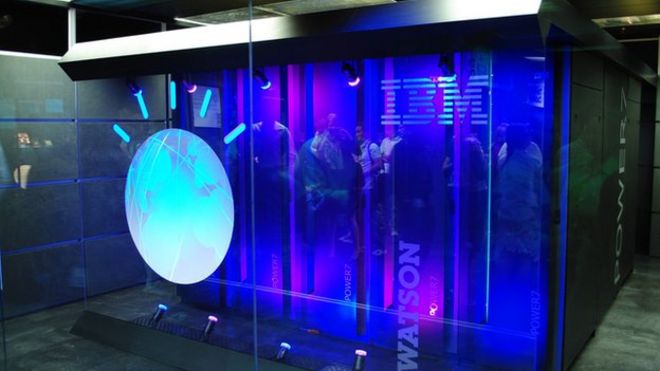
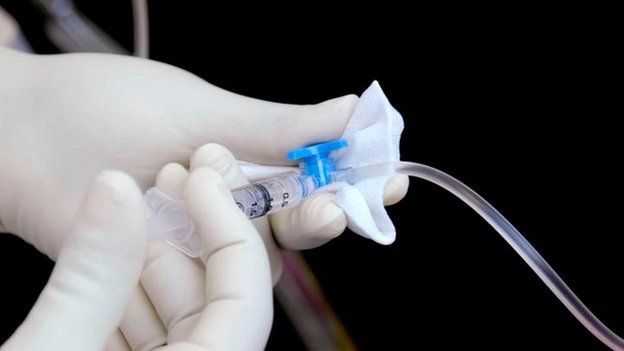
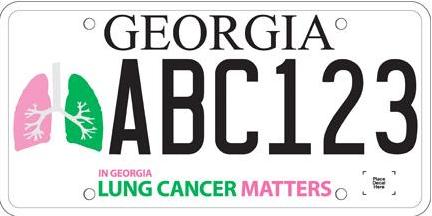

 RSS Feed
RSS Feed
